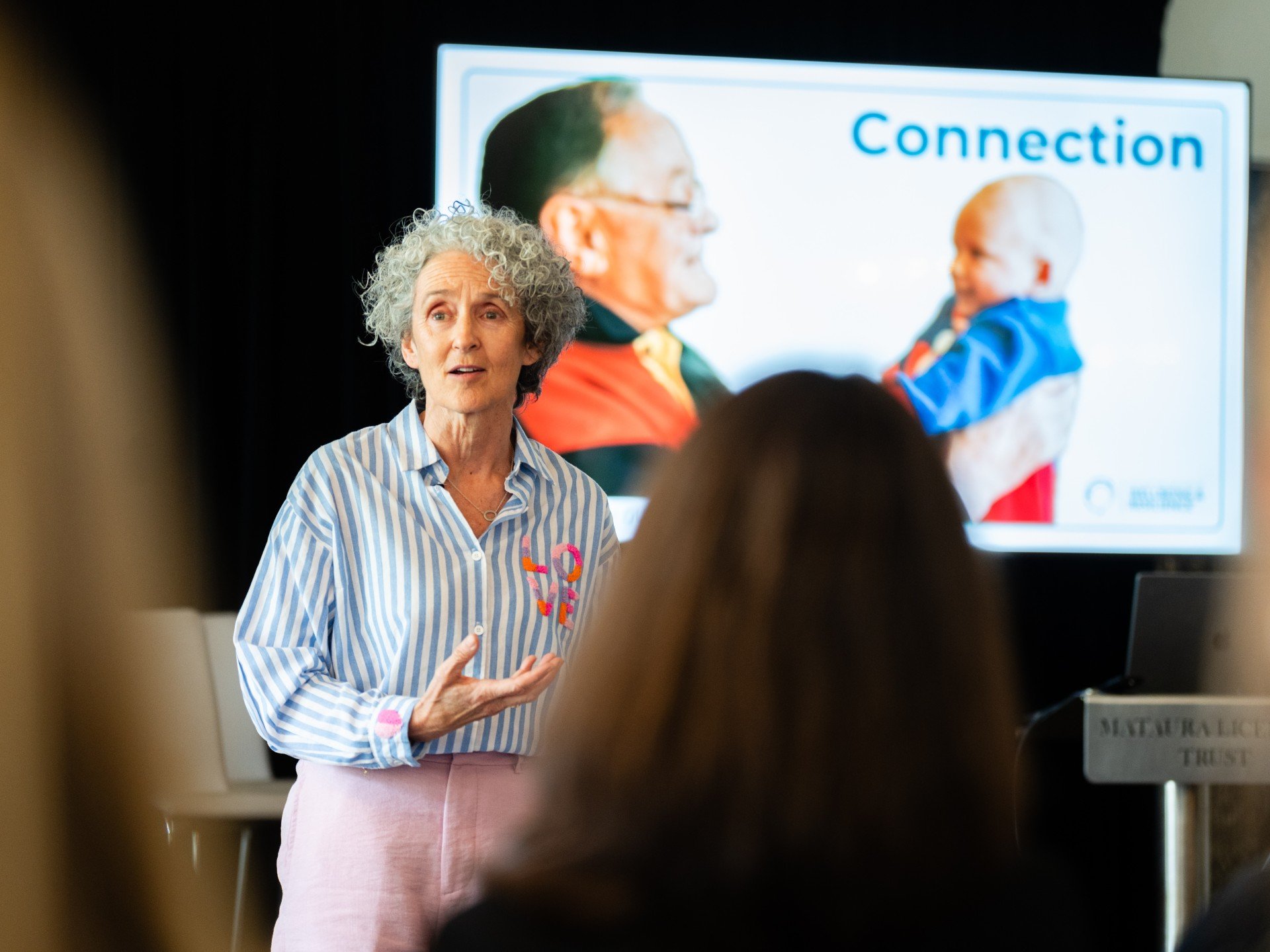
Irish-born Dr Denise Quinlan is director of the New Zealand Institute of Wellbeing and Resilience and has lectured on strengths and positive psychology around the world.
Last week she was in Gore for the Inspiring Wāhine Rural Conference & Events, the second Inspiring Wāhine gathering founded by Clare Toia-Bailey to energise, connect, celebrate and uplift rural women from all walks of life.
This year’s theme was Thriving Together: Cultivating Inspiration and Resilience. The main focus was on women’s health and wellbeing and the programme also focused on community engagement, leadership, business, creativity and extending their reach.
Dr Quinlan, one of the keynote speakers, has researched and worked extensively in wellbeing development in state and private education over the past decade in New Zealand, Australia, and the United Kingdom.
Her work has been published in international academic journals and edited volumes on positive psychology, wellbeing in education, and restorative practices.
She told those attending the conference that she had fallen in love with rural women — "because I think you are my hope for the future". What she had heard was they were the ones that simply "get s... done".
There were two fundamental factors underpinning wellbeing that attention was not being paid to — the capacity for focused attention, and connection to the people that mattered most in your life.
Those were critical factors that underpinned people’s ability to thrive and perform but Dr Quinlan was concerned the way we were living was degrading and fragmenting them.
"We’ve got multiple competing demands... it’s not working for us. We are social creatures, we are wired for connection. Your ability to perform and to be well depends on you feeling safe, connected and having a sense of belonging. We are increasingly isolated, we’re so busy," she said.
So how did we get here? Over the last 50 years there had been the greatest drive for efficiency the world had ever seen, all with the aim of getting people to go faster and do more with less.
"Most of us are doing jobs four people used to do and then going home and doing another one."
Then there was technology, including the advent of the smartphone. Whether it was working on holiday or answering emails in the loo, it had "ramped up to a point we might have got here by accident but it’s going to take deliberate actions to change it" and everyone had a role to play in that.
"Every single time you do something to protect your focused attention or connection, you are making change. And we need it."
Last year, Dr Quinlan finally took off her noise-cancelling headphones, slowed down, got into the garden and became herself again.
"When I managed to slow down, I was able to be there for people... I realised I was able to listen to someone without the internal foot-tapping of ‘get to the point’. When I slowed down, I had more patience, more compassion and more ideas and clarity."
While people talked about artificial intelligence being a threat, she was terrified "about what we are doing about human intelligence".
People were hyper-connected 24/7 and everything was urgent. Protecting your attention required focus time, cutting out distractions, prioritising, and recovery time.
It was time for radical prioritisation — what was humanly sustainable — and, at a team level, the greatest gift managers could give their team was clarified priorities.
If priorities changed, then bringing people up to speed was one of the best things that could be done to build trust, cohesion and help stop people burning out.
Recovery time was mostly ignored. Recovery was needed both during the day and in the evening at home and it would be different for different people.
Recovery in the evenings meant time not thinking about work. When Dr Quinlan came to New Zealand in the early 1990s, she was a rock climber and that was the best thing for not thinking about work — as she was either holding on, or the alternative was falling.
"I want you to take recovery seriously. It’s about being sustainable, being here for the long haul and about being here for the people that matter to you. Your life is always more important than your job and we’re not acting like it is."
And when things were tough, people needed to train themselves to remember what was still good. Building collective resilience was about being known to each other, noticing the good in people and sharing their positive impact, more compassion and less perfectionism, asking what genuine support looked like for people, and more listening.
Over the last few years, Dr Quinlan heard many people found it easier to imagine a future that was societal breakdown rather than a community focused and community led sustainable equitable society.
"That’s a big problem. We can either think about the future as something that comes at us like a tsunami — or something we step into and create. We need to be able to imagine the future we need to create."
Officially opening the conference remotely, Minister for Women and Associate Minister for Agriculture Nicola Grigg described rural women as the backbone of the country.
They were the glue that held communities together and Inspiring Wāhine was a great opportunity to honour that connection and the multiple roles women played in their communities.
They were more than capable and deserving of not just being in the boardroom but at the head of the table, she said.

















